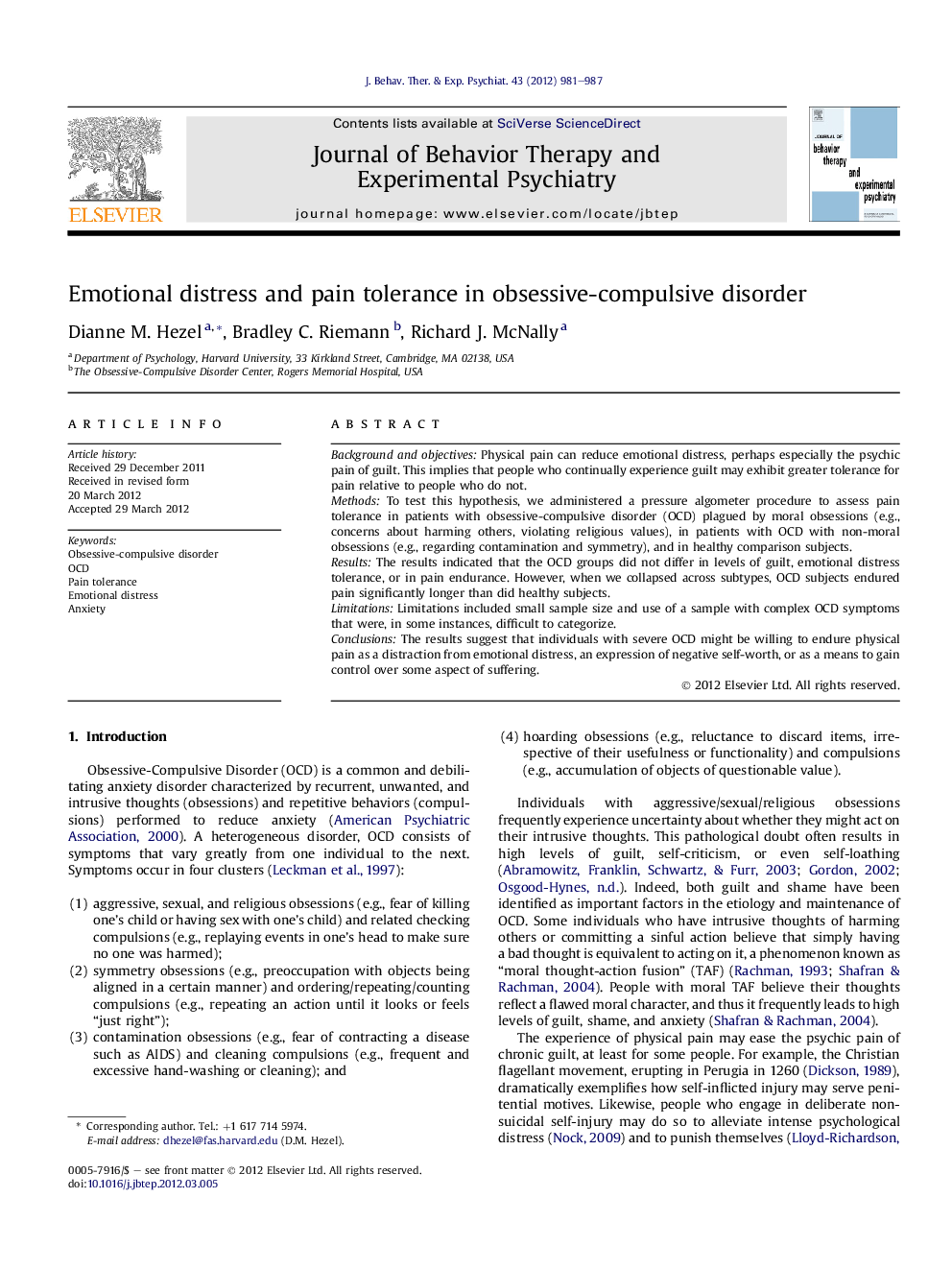| Article ID | Journal | Published Year | Pages | File Type |
|---|---|---|---|---|
| 910441 | Journal of Behavior Therapy and Experimental Psychiatry | 2012 | 7 Pages |
Background and objectivesPhysical pain can reduce emotional distress, perhaps especially the psychic pain of guilt. This implies that people who continually experience guilt may exhibit greater tolerance for pain relative to people who do not.MethodsTo test this hypothesis, we administered a pressure algometer procedure to assess pain tolerance in patients with obsessive-compulsive disorder (OCD) plagued by moral obsessions (e.g., concerns about harming others, violating religious values), in patients with OCD with non-moral obsessions (e.g., regarding contamination and symmetry), and in healthy comparison subjects.ResultsThe results indicated that the OCD groups did not differ in levels of guilt, emotional distress tolerance, or in pain endurance. However, when we collapsed across subtypes, OCD subjects endured pain significantly longer than did healthy subjects.LimitationsLimitations included small sample size and use of a sample with complex OCD symptoms that were, in some instances, difficult to categorize.ConclusionsThe results suggest that individuals with severe OCD might be willing to endure physical pain as a distraction from emotional distress, an expression of negative self-worth, or as a means to gain control over some aspect of suffering.
► We assessed emotional distress and physical pain tolerance in individuals with OCD. ► OCD groups did not differ in level of guilt, distress tolerance, or pain endurance. ► OCD subjects had higher shame and guilt and lower pride than did healthy subjects. ► OCD subjects endured pain significantly longer than did healthy subjects. ► OCD subjects may endure pain longer because of negative self-referential emotions.
